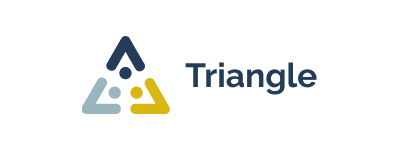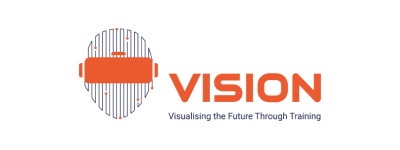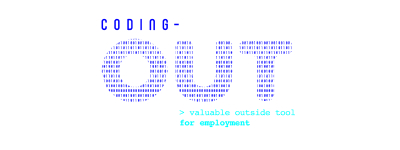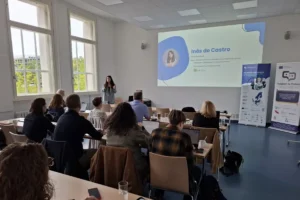A group of European experts has advanced in the creation of an online platform aimed at young individuals deprived of liberty. Following a goal to enhance digital skills and allow easier access to employment opportunities, this partnership relies on a three-pronged approach to the issue: connecting people, the platform, and the programme.
Breaking Barriers to Reentry
In the realm of rehabilitation in criminal justice, one undeniable fact is the transformative power of education within the confines of prison walls. Research has recognised the immense value of providing education to incarcerated individuals, especially young people1,2.
By offering educational opportunities to those behind bars, they are not only being equipped with essential skills and knowledge but also unlocking their potential for personal growth. This, in turn, leads to reduced recidivism rates and fosters a more inclusive and equitable society1.
In the digital age, access to technology and digital literacy skills have become essential for full participation in society. However, for incarcerated young people, the digital divide poses an additional barrier to successful reintegration and personal growth.
Recognising the transformative potential of digital education, it is crucial to provide incarcerated youth with opportunities for developing technological skills, fostering digital literacy, and promoting access to educational resources.
The Power of Digital Education
Digital education offers incarcerated youth an invaluable opportunity for personal growth, skill development, and empowerment3,4. By providing access to educational materials, online learning platforms, and digital resources, they can be empowered to overcome the challenges of the digital divide, break free from the cycle of incarceration, and build a brighter future.
Moreover, digital education can cultivate critical thinking, problem-solving abilities, and creativity3,4, preparing young individuals for the demands of the modern workforce and increasing their chances of successful reintegration into society.

The TRIANGLE project
The TRIANGLE – Secured digital education system for vocational skills for youngsters in closed institutions – project aims to develop a customised online platform that allows youngsters and adults in secure care and detention centres to access a safe online environment.
Leveraging this digital platform, it is possible to improve connections between detainees and the outside world, while promoting the development of essential skills for today’s society.
To that end, the project is producing training, learning, and practice activities for a large sample of staff and young people in youth centres around Europe, as well as external trainers and teachers.
After the creation of the content for the TRIANGLE platform, various pilots will start from June 2023, with young individuals that are deprived of liberty. This will be an opportunity to gather their feedback on the platform’s benefits and evaluate the need for additional resources that align with their needs and interests.
Staying up to date with the initiative
Everything, from results of the upcoming pilots to updates on the project activities will be shared in the TRIANGLE project Newsletter.
The 2nd Edition of the Newsletter is now available. This newsletter explores the importance of creating a storyline for this innovative platform that TRIANGLE is developing to provide access to digital skills, education, and communication. Discover TRIANGLE’s platform storyline and how the planned content will be created. Get to know the partners involved in this ground-breaking initiative and how you can support this vital work. Learn about upcoming events related to this project, focused on breaking down digital barriers for young people and adults in detention and secure care centres.
The TRIANGLE consortium will meet in September to discuss the project advancements, namely the progress of the pilots, the development of assessments, and the feedback received about the online platform. Additionally, the TRIANGLE team will participate in two international conferences, EPEA conference in June 2023 and ICPA conference in October 2023, where they will have the opportunity to share information about the TRIANGLE platform and deliver workshops based on the work the consortium has done until now.
References
1 Vandala, N., G. (2019). The transformative effect of correctional education: A global perspective. Cogent Social Sciences, 5:1, DOI: 10.1080/23311886.2019.1677122
2 Hawley, J., Murphy, I., & Souto-Otero, M. (2013). Prison Education and Training in Europe. Current State-of-play and Challenges.
3 McDougall, C., Pearson, D. A. S., Torgerson, D. J., & Garcia-Reyes, M. (2017). The effect of digital technology on prisoner behavior and reoffending a natural stepped-wedge design. Journal of Experimental Criminology, 13, 455–482. https://psycnet.apa.org/doi/10.1007/s11292-017-9303-5
4 Toreld, E. M., Haugli, K. O., & Svalastog, A. L. (2018). Maintaining normality when serving a prison sentence in the digital society. Croatian Medical Journal, 59(6), 335–339. https://doi.org/10.3325/ cmj.2018.59.335
Know more about this project

TRIANGLE
Secured digital education system for vocational skills for youngsters in closed institutions
The TRIANGLE project is led by Click F1 (The Netherlands) and partnered by the Stichting Defence for Children International (The Netherlands), IPS_Innovative Prison Systems (Portugal), Eduvier (The Netherlands), the Flemish Support Centre for Adult Education (Belgium), The Federal Public Service Justice (Belgium), Aproximar (Portugal), Foundation 180 (The Netherlands), and Opgroeien (Belgium).
For more information about the TRIANGLE project, please visit its page.
Related projects

STEP2LAB
Systematic Transition from Prison into the Labour Market

VISION
Visualising the Future Through Training

NEXT STEPS
Development and testing of a process chain for the placement of former detainees as specialists in the labour market

PREVEX
Preventing Emotional and Sexual Abuse Among Young People

TRAIVR
Training of Refugee Offenders by Virtual Reality

ViRTI
Virtual reality for training inmates

BLEEP
Blended Learning Environment for European Prisoners

VR4DRUG Rehab
Developing and Using Virtual Reality Technology for the Rehabilitation of Drug Users in Probation Services

Coding-OUT
Coding in prison as a valuable OUTside tool for employment

RE[ENTER]
Strengthening the capacity of criminal justice professionals and volunteers
Related news

IPS showcases virtual reality solutions for skills development and stress management at Berlin workshop
Read More »
IN2PREV Final Conference highlights cross-sector collaboration for refugee inclusion and radicalisation prevention
Read More »
JUSTICE TRENDS Magazine Launches 14th Edition: Expanding the Frontiers of Rehabilitation Support
Read More »





